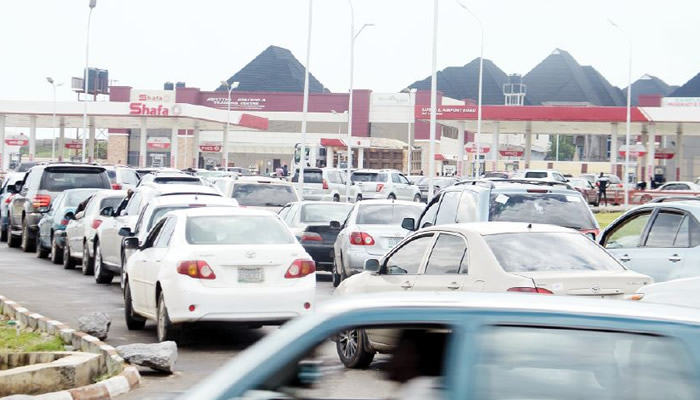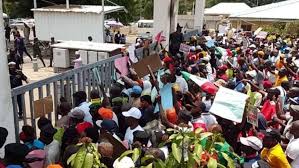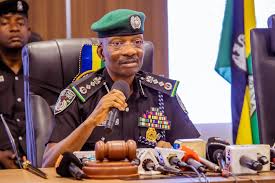
Fuel scarcity looms as depots raise petrol price to N720/litre
The ex-depot price of petrol has been boosted from N630 to N720 by private depot owners, causing a creeping fuel shortage in Lagos and other parts of the country.
This occurred on Sunday, as the scarcity of petrol worsened in Abuja and the surrounding states, with some filling stations charging as much as N900 per litre for PMS.
Due to their refusal to purchase fuel from the private depots at exorbitant prices, several filling stations in Lagos, Ogun, and other states have run out of supplies, according to our reporters.
The National Vice President of the Independent Petroleum Marketers Association of Nigeria, Hammed Fashola, stated in a conversation with one of our correspondents on Sunday that several filling stations were unable to open for business due to a shortage of fuel in their tanks.
He stated that Nigerians should be informed about the situation with the product by the Nigerian National Petroleum Company Limited, which is now the only importer of petrol.
"Those who closed their stations had nothing to sell but fuel. You are unable to open your station when you are out of fuel. That's the issue. As you are aware, NNPC is the product's only importer. It is, in my opinion, in the best position to inform us of the true situation.
Independent marketers are currently unable to purchase the goods sold by private depots. A litre of fuel costs between N715 and N720 from them. How much will the product be sold for by marketers? Consider the expenditure of transporting it to their depots; in addition to other depot costs, it will be too costly for them. That is why the stations are shut down. Some marketers refuse to go and buy because they know the masses cannot afford high-priced petrol in this economy. That is the situation for now,” the IPMAN leader stated.
According to information obtained by our reporters, the NNPC supplies petrol to large marketers for less than or about N600, while third parties, who are private depot owners, used to sell PMS to independent marketers at a rate of N630–650/litre.
Leaders of IPMAN have repeatedly urged the NNPC to provide them with petrol directly, just as they do for large marketers, but the NNPC has not complied with this request.
Fashola urged Nigerians to purchase necessities rather than rushing into purchases in order to keep fuel in circulation.
According to information acquired, independent marketers sold petrol for between N750 and N800 per litre, while major marketers offered it for less than N650.
Several officials attested to one of our correspondents that officials of the Nigerian National Petroleum Company Limited stormed the various depots in Apapa on Friday, mandating depot owners to prioritise fuel supply to the Federal Capital Territory, Abuja, where the fuel queues were initially noticed on Friday.
Abuja gave priority to
Many trucks were allegedly sent to Abuja on Saturday and Sunday in order to shorten the lines in the Federal Capital Territory, leaving minimal supplies in Lagos and other locations.
Due to the deficit in the fuel supply, one of the officials said that the NNPC was limiting PMS to depots.
This occurs just three days after a Reuters article stated that Nigeria's debt to Premium Motor Spirit suppliers has risen to over $6 billion, more than tripling from what it was in early April, as the NNPC has found it difficult to bridge the difference between set pump rates and the cost of fuel imported from overseas.
The national oil company reportedly started having problems early this year when late PMS payments exceeded $3 billion, a claim the NNPC refuted.
The corporation claimed it still owed money to dealers for some goods in January worth between $4 billion and $5 billion.
According to an industry source, "traders are only putting up with it because of the $250,000 monthly (per cargo) for late payment compensation."
After reaching their self-imposed debt exposure limitations to Nigeria, at least two suppliers have stopped taking part in subsequent tenders; as a result, they would not ship any more PMS until they are paid.
According to traders who spoke with Reuters, Nigeria reportedly held smaller petrol procurement contracts in June and July. According to Reuters, which cited sources, NNPC will import roughly 850,000 tonnes through tender in July as opposed to the usual one million tonnes in prior months.
The majority of filling stations in Nigeria are owned by independent marketers, however research indicates that some marketers have refused to provide petrol to them. This was assumed to be caused by the depots' and marketers' inadequate supply from the NNPC.
We concentrate on our filling stations right now. We currently receive from the NNPC less than half of what we typically receive. Therefore, before we even think about selling to independent marketers, we make sure to fuel our stations. The majority of them are therefore out of stock. One of the depot operators, who wished to remain anonymous since he was not permitted to talk on the subject, stated, "You know they don't have access to the NNPC and the little we get is not even enough for our stations."
The operator said that because demand exceeds supply, the few depots that sell to IPMAN members had to charge more.
According to our sources, residents of Lagos, who are still haunted by the gasoline shortage that nearly brought the city's economy to a standstill in May, were beginning to worry as lines were starting to form again as of Sunday.
Upon visiting various petrol stations throughout the state, our correspondent saw that a few of them had raised the price of PMS.
With the shutdown of numerous filling stations run by independent marketers, new lines for the commodity appeared on Friday in Abuja, as well as in some regions of Niger and Nasarawa states.
Due to their inability to obtain petrol when private depot owners raised the ex-depot price of the product to N710/litre, dealers had to close their retail locations.
On Friday, drivers swarmed the few petrol stations that were open, especially those operated by the Nigerian National Petroleum Company Limited and some major oil marketers in Abuja and neighbouring states.
It was seen that Lagos was being affected by the circumstance. At the time this report was filed, only around two of the roughly ten fuel stations along the Ikotun to Egbeda axis were dispensing.
Long lines formed outside one NNPC store in Ikotun that sold the product for N568 a litre, while other locations were not dispensing. Only one Petrocam outlet at the Igando-Ikotun axis offered at N820 per litre.
Prolonged lines
Additionally, a huge queue of customers was seen at a TotalEnergies location on Mushin Road in Isolo, where fuel was being sold for N615 per litre.
At the time this report was submitted, a Technoil fueling station at Isolo Bustop was not operating.Also, the NNPC filling station on the same axis that sold for N568 per litre was crowded with cars.
Our correspondent further observed that there were no fuel attendants at an AP filling located along Okota Road, as the outlet was closed at the time of filing this report.
Al Morouf filling located along Ilasa Road only sold to a few customers.
A motorist who simply gave his name as Mr Emmanuel Anyebe, said, “They said they have removed fuel subsidy and by that, we assumed that what happened in the telecommunication industry would happen to the oil and gas sector, but it didn’t. It is not as if there is scarcity, there is no scarcity anywhere. I asked at the fuel station why the queue all they could say was that they had not been able to get the product. He said that about six tankers they ordered in the last two weeks were only able to get one tanker delivered to their station. This is just unnecessary suffering that is how I see it, they suffer people and waste people’s time unnecessarily.”
The AP Fuel Station at Ilasamaja experienced intermittent fuel sales on Sunday.
The station sold fuel in the morning but stopped operations in the afternoon, resuming sales later in the evening. Customers willing to pay a premium could purchase five litres of fuel at a rate of N4,000.
“We sold at N615 per litre today but we have stopped for now. However, if you are desperate, we can sell to you at a higher rate,” a customer attendant at the AP Fuel Station revealed.
Meanwhile, the General Fuel Station in Sadiku had no fuel available when visited by our correspondent, exacerbating the fuel scarcity crisis in Lagos.
A motorist simply identified as Segun in Nepal, Akowonjo, Lagos State, told our correspondent that he purchased fuel at the rate of N650, adding that the queue was becoming unbearable.
I think the government should take action because I have been purchasing it in this manner for a long time, but we are at a loss as to what to do. I paid N650 per litre, which is inconvenient.
Timothy, a commercial driver, claimed to have paid N670 at Petrocam in Ikeja for petrol.
"Everything is growing, the dollar is strong, and these producers are all storing the fuel somewhere," he stated. They even hinted at the possibility of rising prices.
Checks conducted by our correspondent in Ogun State showed that gas was sold in lengthy lines for betw





